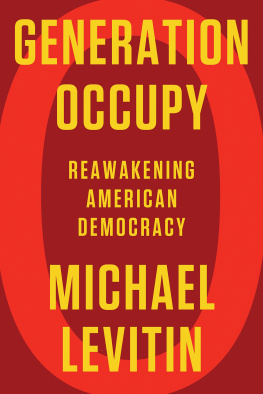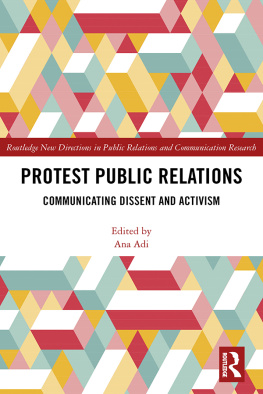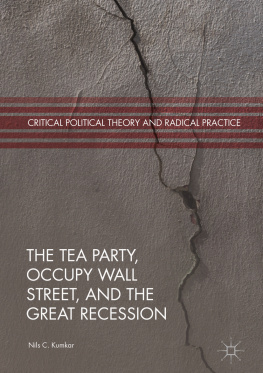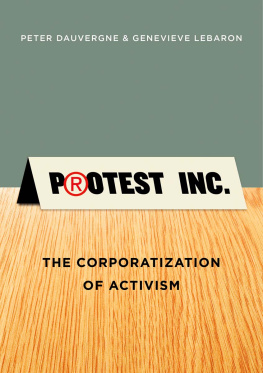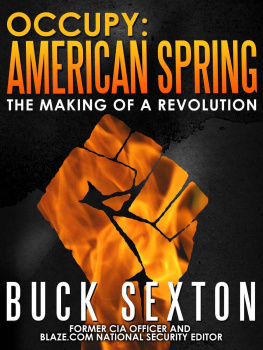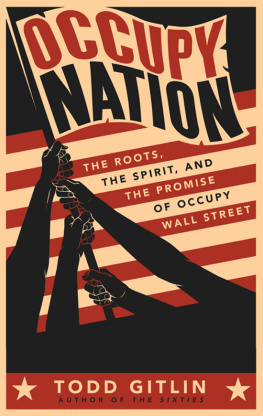
Collecting Activism, Archiving Occupy Wall Street
Collecting Activism, Archiving Occupy Wall Street explores the material collections produced by participants of Occupy Wall Street in 2011 that bear witness to the experience and agency of the 99%.
Examining processes of collection development as a lens through which to investigate the sociology of protest and reform movements, the book questions what contribution a dual study of the material culture of dissent and the production of a collection hosting the material culture of dissent might offer to a range of disciplines and practices. It asks if and how a collections-based study can test the propositions, tactics, and limits of activism from archival, museological, and political perspectives.
Collecting Activism, Archiving Occupy Wall Street draws from interdisciplinary fields, including museum studies, collection studies, archive studies, cultural studies, and public history. It will be a valuable resource for scholars and practitioners engaged with contemporary cause-based collecting, activist archiving, public history, and the cultural politics and sociology of social reform movements. It models strategies for activating historical archives and collections-based data, and for engaging with autoethnographic records to represent and analyze the material residue of protest and reform movements today.
Kylie Message is Professor of Public Humanities in the Humanities Research Centre and Associate Dean (Research) for the College of Arts and Social Sciences at the Australian National University. Her recent publications include The Disobedient Museum: Writing at the Edge , Museums and Racism , and Museums and Social Activism: Engaged Protest . She is the Founding Series Editor of Museums in Focus.
Museums in Focus
Series Editor: Kylie Message, Australian National University, Australia
Committed to the articulation of big, even risky ideas, in small format publications, Museums in Focus challenges authors and readers to experiment with, innovate, and press museums and the intellectual frameworks through which we view these. It offers a platform for approaches that radically rethink the relationships between cultural and intellectual dissent and crisis and debates about museums, politics, and the broader public sphere.
Museums in Focus is motivated by the intellectual hypothesis that museums are not innately useful, safe, or even public places, and that recalibrating our thinking about them might benefit from adopting a more radical and oppositional form of logic and approach. Examining this problem requires a level of comfort with (or at least tolerance of) the idea of crisis, dissent, protest, and radical thinking, and authors might benefit from considering how cultural and intellectual crisis, regeneration, and anxiety have been dealt with in other disciplines and contexts.
Recently published titles
Collecting Activism, Archiving Occupy Wall Street
Kylie Message
Museums, Infinity and the Culture of Protocols
Ethnographic Collections and Source Communities
Howard Morphy
https://www.routledge.com/Museums-in-Focus/book-series/MIF
Logo by James Verdon (2017)
Collecting Activism, Archiving Occupy Wall Street
Kylie Message
First published 2020
by Routledge
2 Park Square, Milton Park, Abingdon, Oxon OX14 4RN
and by Routledge
52 Vanderbilt Avenue, New York, NY 10017
Routledge is an imprint of the Taylor & Francis Group, an informa business
2020 Kylie Message
The right of Kylie Message to be identified as author of this work has been asserted by her in accordance with sections 77 and 78 of the Copyright, Designs and Patents Act 1988.
All rights reserved. No part of this book may be reprinted or reproduced or utilised in any form or by any electronic, mechanical, or other means, now known or hereafter invented, including photocopying and recording, or in any information storage or retrieval system, without permission in writing from the publishers.
Trademark notice : Product or corporate names may be trademarks or registered trademarks, and are used only for identification and explanation without intent to infringe.
British Library Cataloguing-in-Publication Data
A catalogue record for this book is available from the British Library
Library of Congress Cataloging-in-Publication Data
Names: Message, Kylie, author.
Title: Collecting activism, archiving occupy / Kylie Message.
Description: New York: Routledge, 2019. | Series: Museums in focus | Includes bibliographical references and index.
Identifiers: LCCN 2019027843 (print) | LCCN 2019027844 (ebook) | ISBN 9781138240124 (hardback) | ISBN 9781315294094 (ebook) | ISBN 9781315294087 (adobe pdf) | ISBN 9781315294063 (mobi) | ISBN 9781315294070 (epub)
Subjects: LCSH: Occupy Wall Street (Movement)Archives. | Occupy movementNew York (State)New YorkRecords and correspondence. | Protest movementsUnited StatesHistory21st centuryRecords and correspondence. | EqualityUnited States. | Income distributionUnited States.
Classification: LCC HC110.I5 M43 2019 (print) | LCC HC110.I5 (ebook) |DDC 026/.32244097471dc23
LC record available at https://lccn.loc.gov/2019027843
LC ebook record available at https://lccn.loc.gov/2019027844
ISBN: 978-1-138-24012-4 (hbk)
ISBN: 978-1-315-29409-4 (ebk)
Typeset in Times
by Deanta Global Publishing Services, Chennai, India
Anonymous graffiti, Athens. Image and logo by James Verdon (2017).
For Oscar
The research for this book has been complex and has taken several years. While this is not unusual, it does go some way to explaining why it came to be known as the impossible project. My main debt of gratitude goes to Amy Roberts. It is because of her and other members of the Occupy Archives Working Group that the collection has a future. Although this book will come up short in representing their visionary and significant work, I hope it builds awareness of the intellectual and practical contributions they made to activist archiving. My approach was influenced by a chapter written by Sian Evans, Anna Perricci, and Amy Roberts (Why Archive? And Other Important Questions Asked by Occupiers, in M. Morrone (ed.), 2014, Informed Agitation: Library and Information Skills in Social Justice Movements and Beyond , Sacramento, CA: Library Juice Press), which offers insight and reflection into the process of archiving Occupy. I acknowledge Timothy Johnson, and very warmly thank the archivists and interns at Tamiment Library. I am also grateful to those at the Smithsonian Institution, the Museum of the City of New York, and the Interference Archive in Brooklyn for their discussions and for opening collections for me.
I am grateful for research funding and time provided by the Research School of Humanities at the Arts, and the College of Arts and Social Sciences at the Australian National University. I thank the College of Arts and Humanities Institute (CAHI) at Indiana University, Bloomington, for hosting me throughout the summer of 2018. I continue to be indebted to Heidi Lowther, my exceptional editor at Routledge.


